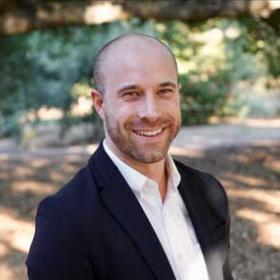
Preventive Diplomacy and the Climate-Energy-Resource Nexus
Writing for EWI's Parliamentarians Network for Conflict Prevention, Nick Mabey and Sabrina Shulz of E3G discuss the importance of preventive diplomacy in addressing resource challenges.
Young democracies are the most vulnerable to political and economic instability. A growing number of countries, including in the Middle East and North Africa (MENA), are also exposed to risk-multipliers emerging out of the climate-energy-resource nexus. Renewed food price shocks in Tunisia and Egypt for example could tip both countries into violence again. The risk of an eruption of violence over people’s inability to feed their families is very real due to the prospect of a food price spike this year driven by the US drought in 2012.
This is an issue for preventive diplomacy. Its success depends on anticipating threshold moments when latent conflicts may erupt and translate into violence. Prices for food, fuel and other resources can be such thresholds. Although the increase in the price of bread was not the cause of the Arab Spring it was the spark that ignited it. Nevertheless, current external interventions and support packages for the region have done nothing to improve resilience to food and energy spice spikes.
Projections on climate, energy and resource trends for the MENA region suggest that risks of instability remain high well into the 2020s. Climate change will likely impact severely on agricultural production and the attractiveness of the region to international tourism. Continuing dependency on the import of fossil fuels at volatile prices in several countries in the region will further impose significant constraints on the prospects of economic growth.
At the same time, stronger GDP growth alone cannot address negative development trends. Economic development can be undermined by systemic risks emerging out of instabilities in global markets but also, in the medium term, by climate, energy and water pressures. Therefore, a greater focus is necessary on directly building national resilience against these risks. Current external stabilising efforts in MENA, especially from Europe, are focusing on providing incentives for continued democratic reforms, building civil society institutions and providing immediate jobs for young people. Whilst these are important areas a focused approach by donors to improve the prospects of medium term stability is lacking.
There is currently a gap in the political understanding of connections between political and economic stability on the one hand and the risks emerging from a changing climate as well as energy, food and water pressures on the other. Preventive diplomacy could greatly increase its impact if these factors were taken into account. External support for instable countries should not only be more joined up but also informed by an analysis of medium term drivers of risk to help prevent the eruption of violence. Support packages by international financial institutions, security sector reform efforts, diplomatic engagement, etc. have to be informed by the same understanding of systemic risks and the need to build national resilience.
It is therefore vital to use diplomatic means to “lobby” decision-makers in young democracies on the need to address their countries’ vulnerabilities. A better understanding of the risks emerging from climate change in particular could help build political will around resilience investments. Tackling vulnerability to drought and rising sea levels in the MENA region, for instance, can improve the prospects of stability. Resilient energy and water infrastructure is a key component of economic development and growth. It is also decisive for agricultural production, and hence food security. Thus, some of the most pressing issues in MENA such as energy poverty, economic development, and public health can be addressed through investments in the areas of renewable energy systems, energy efficiency, water infrastructure, desalination and irrigation systems. Joining forces around these issues could make a major difference. It is also the best use of scarce resources.
Parliamentarians can play a critical role in ensuring that these issues have been fully addressed in programming development assistance and economic support packages to vulnerable countries. The post-Arab Spring investment flows from Europe and the US provide a high-profile test case in a highly vulnerable region for parliamentarians in the relevant countries to use their oversight powers to improve the impact of preventative diplomacy programmes.
Nick Mabey is the founder, director and chief executive of E3G (Third Generation Environmentalism), a non-profit international organization dedicated to accelerating the transition to sustainable development. In addition to his management role, he leads E3G’s work on European climate change policy, climate diplomacy and foreign policy, and the security implications of climate change. As a member of the International Task Force on Preventive Diplomacy, composed of 24 outstanding experts and practitioners in the field of conflict prevention and resolution, Nick Mabey was one of the initiators of the Parliamentarians Network for Conflict Prevention.
Sabrina Schulz is the head of office of the E3G office in Berlin. She is a policy expert working on climate change and energy and resource security. Her current work focuses on climate and energy issues in the MENA (Middle East and North Africa) region, low-carbon urban development in China and the German Energiewende (energy transformation).

